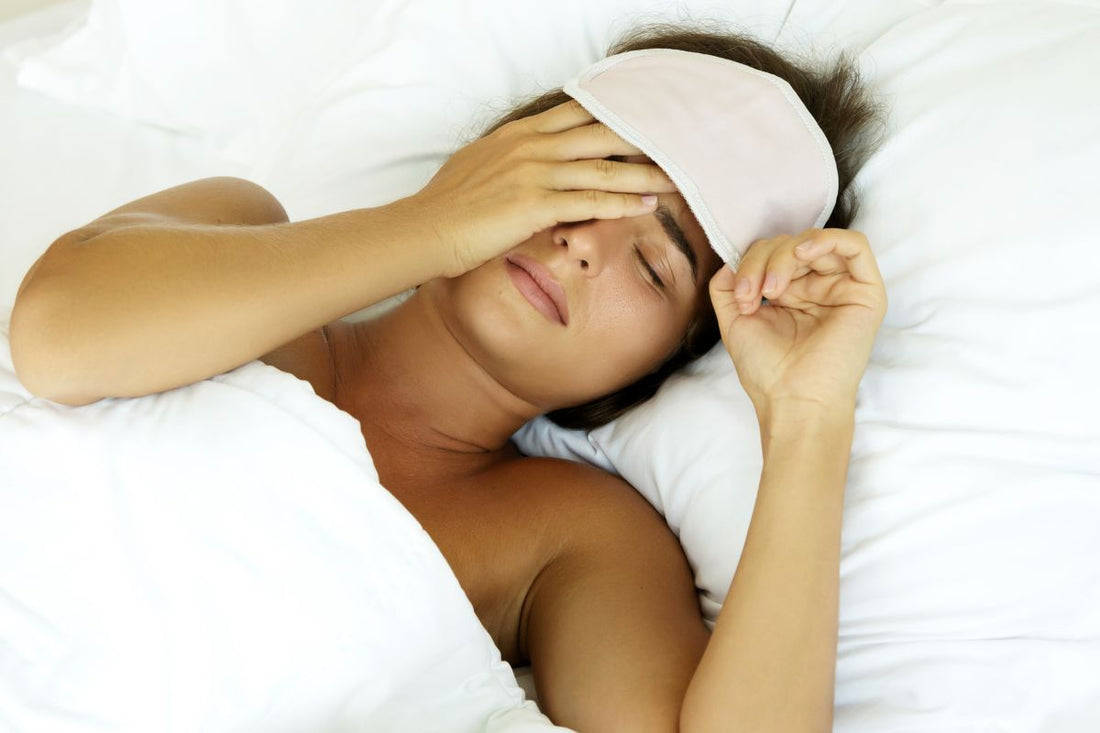Are you suffering from dry eyes? Waking up with dry eyes is irritating. It can last through the day and interrupt valuable sleep at night, making the problem even worse.
Each cause has its own remedy. Identifying the cause and resulting treatment is complicated, but this article will get you on the right path. Most cases of dry eyes can be treated at home.
What Is Dry Eye?
Dry eyes are a common problem that can occur for a few reasons. If you suffer from dry eyes, you may experience symptoms such as itching, redness, and a burning sensation.
If your eyes sting in the morning or are hard to open it is likely to dry eye. But don’t worry - there are plenty of ways to treat dry eyes and get relief from the symptoms.
Symptoms of Dry Eyes
Itching - Itching dry eyes feel like a never-ending cycle of irritation. No matter how much you blink or how many tears you produce, the itchiness remains.
Redness - Red eyes can be an indication of dry eyes, infection, or an underlying medical condition.
Burning sensation - The burning sensation from dry eyes can feel like a sharp, stinging pain. It can also feel like a dull ache or a throbbing sensation.

Fatigue - The fatigue from dry eyes feels like a heavy weight on your eyelids, making it difficult to keep your eyes open.
Headache - The headache from dry eyes feels like a dull, constant ache accompanied by other symptoms of dry eyes.
Causes of Red, Itchy, or Painful Eyes Upon Waking Up
Nocturnal Lagophthalmos
This is a condition in which the eyelids do not fully close during sleep, resulting in dry eyes and irritated corneas. It is a relatively rare condition, affecting less than 1% of the population. It is a form of facial paralysis that is covered here.
Hyperthyroidism
Hyperthyroidism is a condition in which the thyroid gland produces too much of the hormone thyroxine. This can lead to symptoms such as weight loss, anxiety, irritability, and trembling.
Inadequate Tear Production
This can be caused by age, medications, or diseases such as Sjogren's syndrome and rheumatoid arthritis.
Medication Taken Before Bed
- Antihistamines can reduce tear production and contribute to dry eyes. They are often taken before sleep due to their relaxing effect.
- Decongestants are often used to treat allergies and cold symptoms, but they can also cause dry eyes.

- Beta blockers treat blood pressure, which also affects eye pressure.
- Antidepressants make your eyes produce fewer tears.
- Birth control pills affect tear glands through their effect on hormones.
Using a Computer/Gadget Before Bed
Bluelight emitted from screens is unhealthy for the eyes. It throws off our internal clock and strains our eyes with sporadic unnatural light.
This can be fixed with programs that automatically filter blue light emitted from your screen, or with glasses that do the same thing.
Dehydration
Dehydration causes dry eyes due to the lack of water to supply tear production. Drinking water throughout the day and before bed is the easiest first step in treating dry eyes.
You can consult the table below to get an idea of how much water you should drink. Dehydration is the most common cause of dry eyes.
- 120 pounds - 60-120 ounces of water per day
- 150 pounds - 75-150 ounces of water per day
- 200 pounds - 100-200 ounces of water per day
A glass of water can be 8-16+ ounces. You can check the capacity of your favorite glass by using a measuring cup.
It is also important to consider medication and ingestion of caffeine or alcohol as these can affect your hydration levels as well as activity.
The more you sweat, the more water you should drink. It is the same case with high quantities of medication, caffeine, or alcohol.
Treatment for Morning Dry Eye
- Sleeping masks: this reduces airflow around the eye. This assists eye moisture and prevents evaporation.
- Lubricating eye drops: Eye drops can supplement insufficient tear production.

- Eyelid weights: eyelid weights increase pressure in the eye which may assist tear production.
- Ointment before bed: Ointments serve the same purpose as eye drops. They last much longer and are beneficial during sleeping hours.
- Humidifier: this keeps a steady supply of water in the air which assists in maintaining eye moisture, especially during sleeping hours
- Eyelid surgery (severe cases): also called blepharoplasty, this is a surgery that can improve the function of your eyelids.
The surgery involves making small incisions in the skin around your eyes and then removing excess skin, fat, and tissue.
This can help to improve the symptoms of dry eyes after sleeping by increasing tear production and distribution across your eyes.
Eyelid surgery is generally safe and effective, but like any surgery, there are some risks involved. You may experience bruising and swelling around your eyes after the surgery, and your vision may be temporarily blurred.
However, these side effects should improve within a few weeks. If you are considering eyelid surgery for dry eyes, be sure to talk to your doctor about the potential risks and benefits.
My Eye Hurts, Just Give Me the Basics:
How to Treat Dry Eye Syndrome Naturally?
The first natural treatment for dry eyes is of course ensuring proper hydration. Second, the reduction of dehydrating substances such as medications, alcohol, or caffeine can also cure the condition.
Alcohol and sleep medications can be replaced by natural anxiety treatments such as kava or valerian root.
What Should I Know about LASIK Surgery and Dry Eye?
Lasik surgery causes temporary damage to the nerves surrounding the eye. Reduced sensitivity can contribute to tear production.
This issue is likely to fix itself within a week or two of your operation. While healing, you can use lubricating eye drops to reduce dryness in the eyes.

Can Dry Eyes Be Cured?
All cases of dry eyes except Nocturnal Lagophthalmos have known cures. This is an extremely rare condition where the eyes don't close entirely during sleep.
What Is the Best Vitamin for Dry Eyes
The best vitamin for dry eyes will vary depending on your needs. The most commonly used vitamins for dry eyes are omega-3 fatty acids, vitamin A, and Vitamin E. These nutrients are essential for healthy eye function and can reduce the symptoms of dry eyes.
Conclusion
Dry eyes can be painful, irritating, and difficult to treat. There is a wide range of home treatments that are affordable and accessible.
If you have tried everything and are still struggling to sleep, you can consider herbal anxiety treatments. It is likely that your eyes are struggling due to stress.
If you are on antidepressants or pharmaceutical anxiety treatment, they are likely causing the dry eyes. These herbal treatments can supplement these medications and deter their negative effects.
However, it is still best to visit your doctor for a thorough examination of your eyes!

